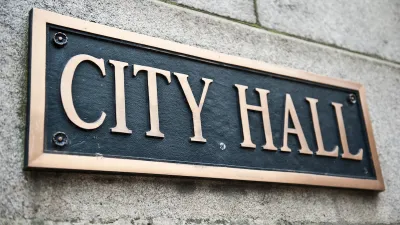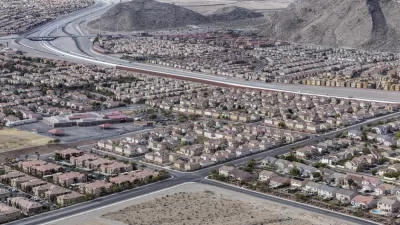The key to solving global poverty is possessing secure land and property tenure, according to this opinion piece. Having such security enables poor communities, even those here at home, to make demands from their governments.
"While experts debate how best to solve the international financial crisis, providing the world's poor with secure tenure to their home or land is a crucial global economic and social problem for which solutions already exist.
Recently, the U.S. mortgage crisis has squeezed many Americans who are struggling to stay in their homes, a struggle they share with 20 percent of the world's population. A full 80 percent of that population, however, has no legal documentation of their property rights or the legal right to stay in their homes.
The absence of clear, enforceable rules and the lack of a simple piece of paper, like a deed, are often roadblocks on the pathway from poverty to prosperity for the world's poor.
Secure tenure - the freedom to live without fear of eviction, the freedom of knowing that property rights are protected - matters not only for you, but also for these individuals, families and communities in the poorest corners of the world. Having a place to call home, or a piece of land to farm, or a place to start a business matters to the poor and non-poor alike, and all of us should have secure access to rights of use, ownership and transfer."
FULL STORY: An end to global poverty starts with property rights

Planetizen Federal Action Tracker
A weekly monitor of how Trump’s orders and actions are impacting planners and planning in America.

Maui's Vacation Rental Debate Turns Ugly
Verbal attacks, misinformation campaigns and fistfights plague a high-stakes debate to convert thousands of vacation rentals into long-term housing.

Restaurant Patios Were a Pandemic Win — Why Were They so Hard to Keep?
Social distancing requirements and changes in travel patterns prompted cities to pilot new uses for street and sidewalk space. Then it got complicated.

In California Battle of Housing vs. Environment, Housing Just Won
A new state law significantly limits the power of CEQA, an environmental review law that served as a powerful tool for blocking new development.

Boulder Eliminates Parking Minimums Citywide
Officials estimate the cost of building a single underground parking space at up to $100,000.

Orange County, Florida Adopts Largest US “Sprawl Repair” Code
The ‘Orange Code’ seeks to rectify decades of sprawl-inducing, car-oriented development.
Urban Design for Planners 1: Software Tools
This six-course series explores essential urban design concepts using open source software and equips planners with the tools they need to participate fully in the urban design process.
Planning for Universal Design
Learn the tools for implementing Universal Design in planning regulations.
Heyer Gruel & Associates PA
JM Goldson LLC
Custer County Colorado
City of Camden Redevelopment Agency
City of Astoria
Transportation Research & Education Center (TREC) at Portland State University
Jefferson Parish Government
Camden Redevelopment Agency
City of Claremont





























